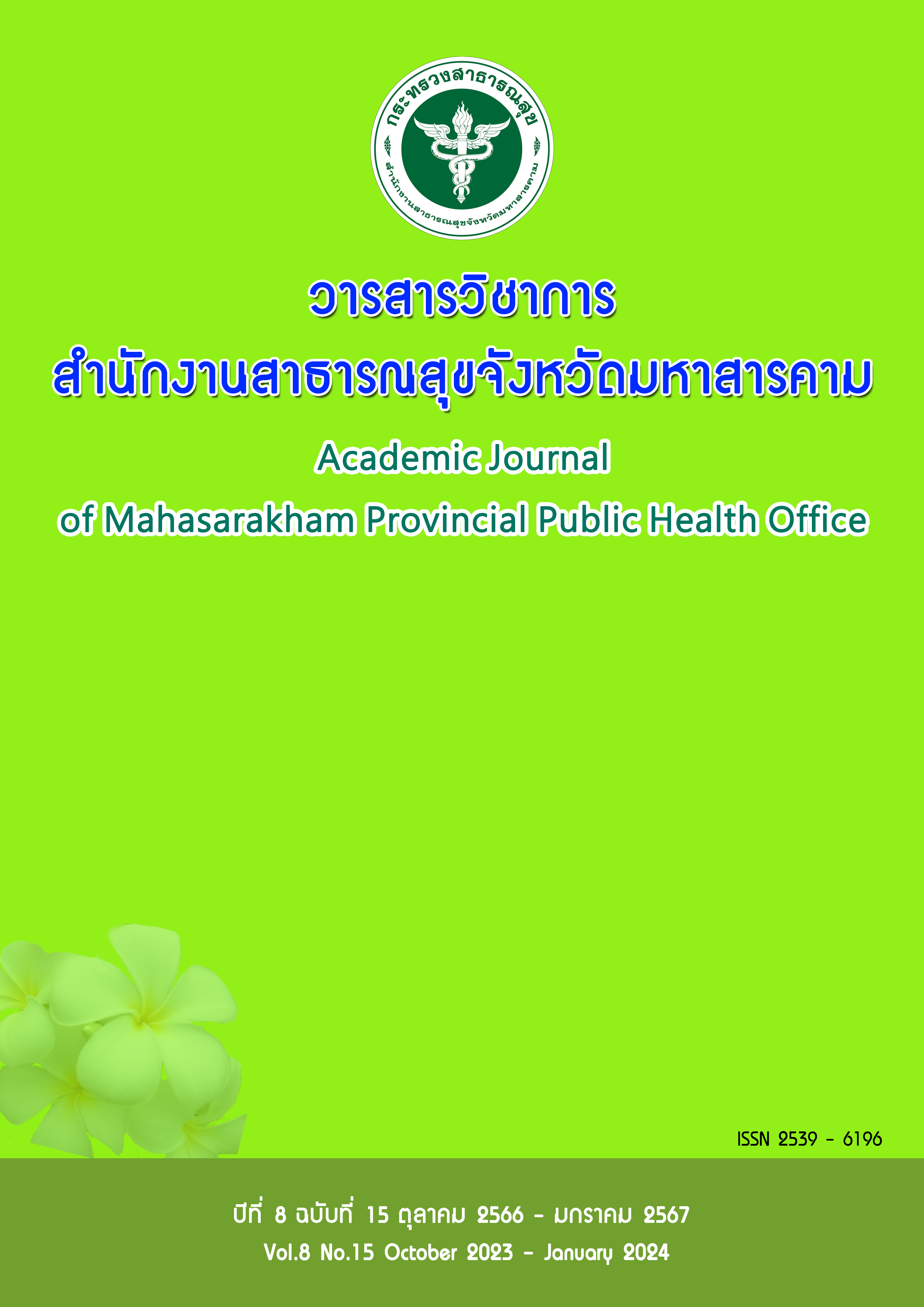The Effect of a Diabetes Self-Management Program on self-management behavior, Hemoglobin A1c levels and Clinical outcomes in Uncontrolled Type 2 Diabetes Patients
Abstract
Abstract
Objective : This study aims to examine the effect of a Diabetes Self-Management Program on Hemoglobin A1c levels and clinical outcomes in Uncontrolled Type 2 Diabetic Patients.
Method : This study was quasi-experimental research (one-group pre-post test design). The participants were 30 type 2 diabetic patients who had HbA1c >7.5 mg%, aged 40 to 80 years, at the Non Tae sub-district health promoting hospital, Muang District, Maha Sarakham Province. They received a Diabetes Self-Management Program for 12 weeks consists of diabetes self-management education, motivational interviews, meditation therapy, and self-care skills training. The research instruments included 1) the Diabetes Self-Management Program, and 2) Hemoglobin A1c and clinical outcomes assessment forms. Data were analyzed using descriptive statistics, and paired t-test.
Results : The results showed that after the implementing the program, the participants had the mean score of HbA1C, waistline, BMI, and blood sugar decreased significantly after completing the program at the .05 level.
Conclusion : The results of this study indicated the effectiveness of improving glycemic control of a Diabetes Self-Management Program. Therefore, diabetes self-management should be continuously promoted. It will help patients maintain their ability to control their Hemoglobin A1c levels and have more consistent clinical outcomes.
Keywords : Diabetes Self-Management, Hemoglobin A1c level, Uncontrolled Type 2 Diabetes Patients


